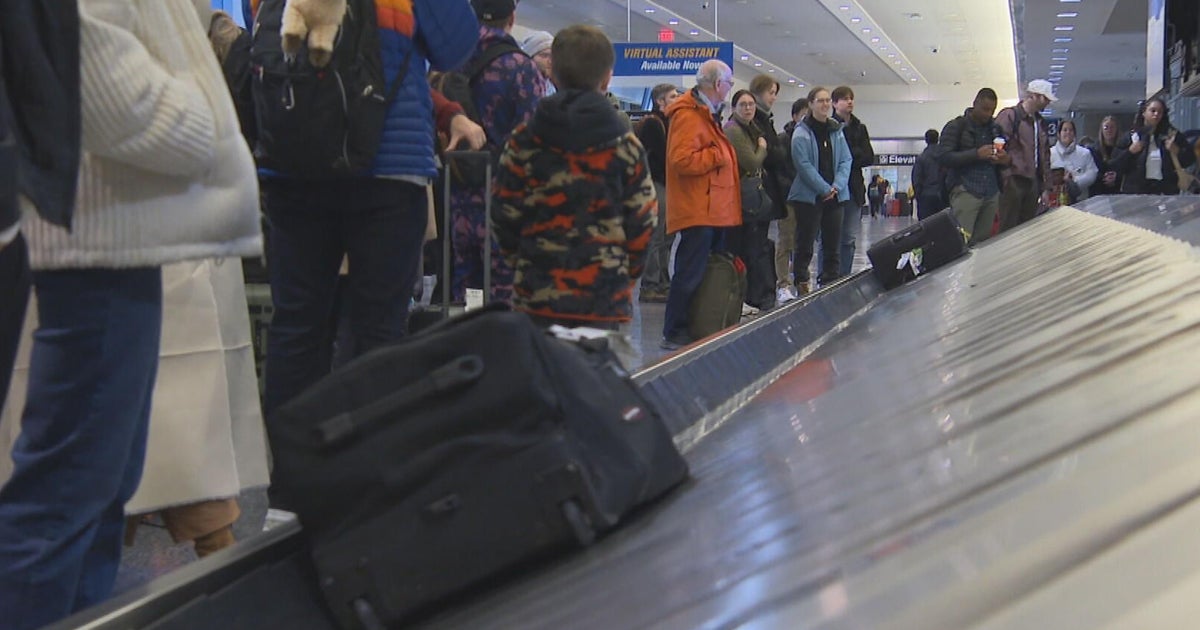Boston, MA
In the shadow of Boston’s gleaming high-end high-rises – The Boston Globe

The high-end crowd will always be taken care of, since that is where the money is for builders and developers. There are some opportunities for the other end of the market in the form of housing lotteries and programs for first-time home buyers. That’s how I bought my first home in the 1980s. But much more needs to be done. I support the transfer fee on sales of high-end properties that has been proposed by both Mayor Michelle Wu and Governor Maura Healey.
Until housing is built as a commodity rather than an investment for the wealthy, we’ll continue to have a problem and see younger people with little choice but to leave Massachusetts.
Jim O’Brien
Arlington
The writer is a retired mortgage banker.
How the other percentage point lives
The Spotlight Team’s front-page article last Sunday presented all the data and facts that one could want regarding the level of wealth contributing to the luxury condominium boom of the last several years. However, perhaps the most telling (and tone deaf) comments came from John Thibault, the retired high-tech executive who owns a unit at the Four Seasons One Dalton, and Theresa Hatton, CEO of the Massachusetts Association of Realtors.
Thibault “said increasing developers’ affordable set-asides is ‘a great idea’ as long as affordable units are not inside luxury buildings.”
Oh, the horror of affordable units in a building that he stays at only “some of the time.” It’s a great idea as long as it’s applied at a distance from him.
Hatton goes a step further in defending vacancies in luxury buildings and opposing vacancy taxes by presenting the vacancies as a net positive to the community. Her justification: “If they’re vacant, they’re not using the schools, contributing to the traffic problem, putting extra burdens on the resources of the city. Why would you want to disincentivize that?”
You want to disincentivize that because you want to create actual communities for the common good.
Hatton’s argument reads as: Build condos, they’ll buy them, they won’t come, and we all make money anyway.
The only people who are incentivized by that theory are the very wealthy and investors, whose interest is not in civic action, developing community, and certainly not in affordable housing.
Maxine Dolle
Brookline
A humble request for a little sharing of the wealth
Thank you for the good piece about the lofty place of those glittering “towers of wealth” in the ever-widening wealth gap of Boston. If any of those lucky folks in their plush pads would care to share some of their wealth and help ensure housing for the less fortunate, they might consider donating to one of the many community development corporations that provide affordable housing and a host of other services in the low-income communities of Greater Boston.
Scott Ruescher
Cambridge
A few luxury condos are not the source of our area’s housing woes
The Spotlight Team’s article on Boston’s new luxury high-rises is a captivating look into how the city’s haves and have-nots experience the housing market.
Unfortunately, it also perpetuates certain popular but misleading tropes about what, exactly, is the reason behind the region’s high housing costs. While gleaming towers such as One Dalton might be visually jarring to Bostonians accustomed to the city’s brick row houses, and the flashy wealth of their tenants might offend those concerned with income inequality, they are statistically insignificant in the grand scheme of the metropolitan area’s 2 million homes. Indeed, the multimillion-dollar sales prices mentioned in the article are barely noteworthy to anyone who has tried to buy a house recently in places like Cambridge, Belmont, or Brookline.
No, the root cause of our current housing problem is not a few luxury condos. It is that, for the better part of 50 years now, the region as a whole has collectively failed to build enough new homes — luxury or otherwise— to accommodate the insatiable and still-growing demand to live in the Boston area. The cost-of-living crisis will not abate until we recognize this fact and stop trying to lay the blame on the latest shiny metal object.
Jacob Anbinder
Ithaca, N.Y.
The writer is a Klarman Fellow in the history department at Cornell University writing a book about the origins of the modern urban housing shortage.

Boston, MA
Why I opposed Mayor Wu’s tax proposal – The Boston Globe

Earlier this year, when a study produced by Tufts University’s Center for State Policy Analysis suggested Boston reevaluate how it finances government services, city officials pushed back, initially dismissing concerns and defending exponential spending increases. That defensiveness, though, quickly shifted to panicked claims of a dire economic scenario and prompted Mayor Michelle Wu to seek legislative approval to raise taxes on businesses more than state law allows. Such an abrupt and dramatic about-face was notable, to say the least.
The Wu administration then went on to suggest that residents would see a 33 percent increase in their taxes and risk losing their homes if this new tax increase did not pass the City Council and the Legislature. For months, city officials escalated their rhetoric, while refusing to share official data that would, in fact, show that Boston’s fiscal issues were not unmanageable. Even if the business tax hike passed, the city still planned to raise residential taxes by 9 percent in 2025, just as it did in 2024. Residential relief was never on the table.
The City Council and the House of Representatives passed the legislation without the city’s official valuation data, so I called for a pause in the Senate until the city disclosed the data. Upon their release, the data showed that the economic sky was not falling. They also showed that lawmakers did not have to accept the false choice of having to risk cratering the Boston economy to mitigate a spike in residential property taxes.
Ample due diligence is required to make informed public policy decisions. Matters that impact residents and businesses must be debated based on objective data and facts — not guesswork, conjecture, or political agendas.
When this matter came before the Senate at the end of its formal session this summer, I made my concerns known. It was clear that downtown businesses were not the only entities that would have suffered disproportionately under the city’s proposed tax increase. Small businesses would have suffered just as much, if not more.
According to the Massachusetts Department of Revenue, raising commercial tax rates beyond the current state limit is “not good public policy.” Doing so raises “constitutional issues” and poses “an impediment to attracting and retaining business.”
There are other tax relief options, such as increasing exemptions for homeowners, low-income residents, and seniors. Working together with Governor Maura Healey, the Legislature did exactly that this session by passing the largest tax relief package in a generation along with sweeping housing and economic development legislation. The tax relief package includes significant increases to the Child and Family Tax Credit, the Earned Income Tax Credit, and Senior Circuit Breaker Tax Credit.
We did this collaboratively while also increasing wages for state employees, improving the Commonwealth’s bond rating, and managing a 2.7 percent growth in our budget while providing record levels of local aid to Boston. Boston, on the other hand, grew its budget 8 percent year over year — a total of $350 million — and 21 percent over the past three years.
What this 10-month process has shown is that City Hall must be more transparent and demonstrate fiscal restraint — not pile more costs onto residents and businesses. To provide residential tax relief, the mayor and City Council should increase the maximum residential exemption from 35 percent to 40 percent.
The city could pay for this by:
▪ Drawing from the surplus rainy day fund without impacting the city’s bond rating, per the recent Moody’s report;
▪ Redirecting funds generated via the Article 80 process from the Bluebikes program to residential relief;
▪ Cutting redundant external programs;
▪ Executing other prudent but targeted cuts like the governor did in mid-fiscal 2024 to balance the state budget.
Whether taxes go up on Boston residents or by how much is strictly up to the mayor and the City Council. Like the state, the city can provide relief for taxpayers, stimulate economic growth, and balance a budget. But it requires being data driven and fiscally responsible.
There’s still time to do so. For the sake of Boston’s taxpayers and the city’s fiscal health, I hope they take the time to get it right. Because it’s clear: the numbers don’t lie.
Nick Collins is state senator for the First Suffolk District in Boston.
Boston, MA
Snowy weather causes gridlock traffic at Logan Airport in Boston

BOSTON – Holiday travel is in full swing with Christmas just days away and travelers at Logan Airport in Boston spent the day dealing with delays from snowy weather.
Delays nationwide
There was gridlock traffic at Logan as travelers embark on their holiday excursions. Donna Ragucci just flew into New England from Florida.
“I am so excited, I get to see my sister and we are going on the trolley today and North End,” Ragucci said.
AAA said snowy weather conditions on Friday led to delays, spinouts and disruptions with flights.
“Overall, we’ve seen a pretty strong volume, which is what we forecasted, a record number of people traveling this year,” said AAA Northeast spokesperson Mark Schieldrop. “There was a storm system that affected a good swath of the country, so Chicago and Boston are two major hub airports, so anytime you have delays or cancellations in one part of the country, we often see a little bit of a domino effect.”
Kevin Walker said this is his first and last time traveling for the holidays.
“Well, we got here yesterday morning and our flight was canceled right when we got here,” said Walker.
AAA said more than 119 million people will travel during from now and Jan. 2. While most flights are on time at Logan there are several delays and cancellations leading to holiday angst.
“Hasn’t been great, my first flight was cancelled and now I guess I didn’t make the cut off for this flight, so now they can’t check the bag but yeah, it’s alright. I got a JetBlue flight tomorrow,” traveler Abbey Reynolds said.
“It’s different because I’m driving this year, so we got the dog coming with us, so I just hope the flight goes OK for the two kiddos and we meet them on the other end,” said a Brookline man heading to North Carolina with his family.
Coping with travel stress
Paul Pierre is heading back to Columbus, Ohio and has his own philosophy when it comes to traveling.
“Don’t let the small stuff upset you. You just go through the airport and you do your best and be kind and you’ll get through it,” Pierre said.
“I’m a therapist, so I practice meditation, go to the gym,” said Ragucci.
“It is what it is, like, I’m not going to get that bent out of shape over it,” said Reynolds.
Boston, MA
Next Weather: WBZ Mid-Morning Update For December 22

Watch CBS News
Be the first to know
Get browser notifications for breaking news, live events, and exclusive reporting.
-

 Politics1 week ago
Politics1 week agoCanadian premier threatens to cut off energy imports to US if Trump imposes tariff on country
-
/cdn.vox-cdn.com/uploads/chorus_asset/file/25789444/1258459915.jpg)
/cdn.vox-cdn.com/uploads/chorus_asset/file/25789444/1258459915.jpg) Technology1 week ago
Technology1 week agoOpenAI cofounder Ilya Sutskever says the way AI is built is about to change
-

 Politics1 week ago
Politics1 week agoU.S. Supreme Court will decide if oil industry may sue to block California's zero-emissions goal
-
/cdn.vox-cdn.com/uploads/chorus_asset/file/25546252/STK169_Mark_Zuckerburg_CVIRGINIA_D.jpg)
/cdn.vox-cdn.com/uploads/chorus_asset/file/25546252/STK169_Mark_Zuckerburg_CVIRGINIA_D.jpg) Technology1 week ago
Technology1 week agoMeta asks the US government to block OpenAI’s switch to a for-profit
-

 Business1 week ago
Business1 week agoFreddie Freeman's World Series walk-off grand slam baseball sells at auction for $1.56 million
-
/cdn.vox-cdn.com/uploads/chorus_asset/file/23951353/STK043_VRG_Illo_N_Barclay_3_Meta.jpg)
/cdn.vox-cdn.com/uploads/chorus_asset/file/23951353/STK043_VRG_Illo_N_Barclay_3_Meta.jpg) Technology1 week ago
Technology1 week agoMeta’s Instagram boss: who posted something matters more in the AI age
-
News1 week ago
East’s wintry mix could make travel dicey. And yes, that was a tornado in Calif.
-
/cdn.vox-cdn.com/uploads/chorus_asset/file/24924653/236780_Google_AntiTrust_Trial_Custom_Art_CVirginia__0003_1.png)
/cdn.vox-cdn.com/uploads/chorus_asset/file/24924653/236780_Google_AntiTrust_Trial_Custom_Art_CVirginia__0003_1.png) Technology2 days ago
Technology2 days agoGoogle’s counteroffer to the government trying to break it up is unbundling Android apps



















